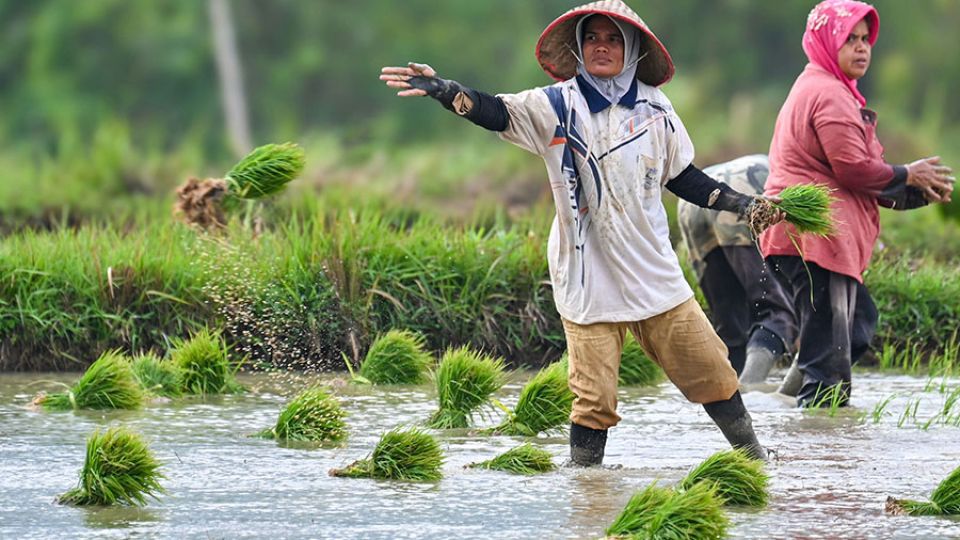April 25, 2025
JAKARTA – President Prabowo Subianto has authorized rice exports to countries in need, reversing an earlier statement by Agriculture Minister Andi Amran Sulaiman, who had insisted on prioritizing domestic reserves.
Speaking during a visit to South Sumatra on Wednesday, Prabowo said the country could share its rice surplus with others without seeking high profits, in the spirit of “humanity,” as long as the basic production, logistics and administrative costs were covered.
“I have received reports from the agriculture minister and the coordinating food minister that several countries have requested rice imports from Indonesia. I approved it. I ordered that rice be sent to them,” Prabowo declared.
According to the President, rice production reached record highs over the past four months. However, the surplus has created a new logistical challenge, as government storage facilities are nearing full capacity.
To address the issue, Prabowo ordered a swift, short-term solution by repurposing idle land owned by the government, military and police as makeshift storage sites.
“I’ve asked government agencies, state-owned enterprises [SOEs], the Army and the police to join forces. I’ll allocate special funding to build temporary storage facilities that won’t be too costly to construct,” he said.
He also pointed to the state-backed Red and White Village Cooperative program as a longer-term solution for managing distribution. With plans to establish 80,000 cooperatives nationwide, each will be equipped with a warehouse, cold storage and one or two trucks.
“These cooperatives will safely store our harvests until the time is right to sell,” Prabowo said, emphasizing the importance of building food resilience amid external pressure.
The government previously said that such cooperatives may hire unemployed graduates with bachelor’s degrees from villages that may be living in cities and retirees with professional experience.
The announcement comes just days after the government rejected a request from Malaysia to import rice from Indonesia. Agriculture Minister Amran cited the need to safeguard domestic supply.
“It was interesting, [Malaysia] asked earlier whether [they] could import rice from Indonesia,” he said during a press conference after a meeting with Malaysian Agriculture and Food Security Minister Mohamad bin Sabu in Jakarta on Tuesday, Bisnis reported.
“I said, for the time being, we will maintain the [domestic] stocks. We will assess the climate [conditions first],” he said.
A shortage of supply had driven prices up in Malaysia, Amran said, explaining that the country could only meet around 40 to 50 percent of national demand.
He also said Japan’s Ministry of Agriculture, Forestry and Fisheries was scheduled to visit Indonesia on April 29 to discuss rice supply options. Japan has seen a sharp rise in rice prices, which have climbed to between Rp 93,000 (US$5.52) and Rp 100,000 per kilogram.
According to local media The Mainichi, rice prices in Japan have risen for 15 consecutive weeks, despite government efforts to stabilize the market by releasing stockpiled supplies.
As of now, Indonesia’s rice reserve stocks (CBP) at the State Logistics Agency (Bulog) stand at 3.3 million tonnes. The government aims to increase the reserve to 4 million tonnes by May, the minister said.


